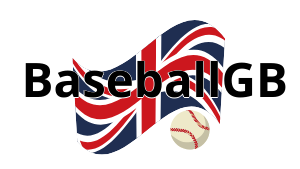John Varnam got in touch with me a few weeks ago mentioning that he had pulled together a history of the Leicester Green Sox Baseball Club (1954–64), primarily based on…
Joe Gray
-
-
We can now announce the winners of the 2013 British Baseball Writing Awards. There were three award-winning entries, and they were of such varied themes that it did not seem reasonable…
-
British baseballProject COBB
Four new members of the British Baseball Hall of Fame inducted in 2013
by Joe Grayby Joe GrayToday the fifth annual class of the British Baseball Hall of Fame (BBHoF) has been announced, and there are four new inductees, bringing the total membership to 22. The inductees…
-
A few weeks back, while clearing out her family home, a lady named Peggy Farrington came across an unusual small, white, round, stitched object. It was a baseball, unused, but…
-
September in British baseball, with only a few exceptions, has in the game’s modern era become the October of Major League Baseball. Building on this tradition, in 2013 the National…
-
With sincere thanks to Inverness Reference Library, I now have a digital copy of what might well be the first box score to ever appear in a British newspaper (the…
-
British baseballProject COBB
Deadline approaching for submitting article to “This Diamond Isle” issue one
by Joe Grayby Joe GrayThe deadline is approaching to submit an article to the first issue of This Diamond Isle, a new biannual journal of British baseball (to be published online only as the periodical…
-
As teams with a chance of making the British baseball play-offs begin to make final preparations, so must those individuals whose grip is not on a seam or bat handle…
-
Apologies for the list nature of this post, but I’m just cataloguing the latest additions to the Project COBB website, which this time fall under the top-tier feats category. In…
-
British baseballProject COBB
New findings upturn previous beliefs on baseball’s intro to the UK
by Joe Grayby Joe GrayNote: In this article, to show that the sport being referred to is a direct antecedent of modern American baseball, the term “baseball†is used throughout, except in quoted passages.…

